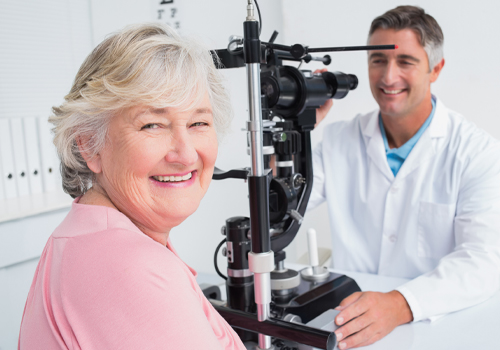By Annie Franklin

The ability to see the beauty of the world is one of the most precious senses we have. It’s easy to take this ability for granted until it’s lost. One of the most common causes of vision loss in adults is a disease called macular degeneration, a condition most commonly seen in those over the age of 50. This disease is associated with a loss of central vision which makes it difficult to see and recognize details such as faces, but some peripheral vision is retained. The most common type, known as dry macular degeneration, is the leading cause of blindness in older Americans. As many as 10 percent of retirement age Americans have some degree of macular degeneration. Fortunately, there may be a way to prevent macular degeneration – through nutrition.
A study published in the British Journal of Ophthalmology showed that a diet rich in the omega-3 fatty acids, DHA and EPA, reduced the risk of progression to serious macular degeneration. To determine this, researchers looked at dietary information on 2,924 subjects. They found that those who had a high intake of omega-3 fatty acids reduced their risk of advanced macular degeneration by about a quarter. Several previous studies have also shown that macular degeneration is less common in those with high intakes of omega-3 from sources such as fatty fish
This isn’t the first study to focus on nutrition as a way to prevent macular degeneration. The National Eye Institute sponsored research which showed that supplementing with high doses of beta carotene, vitamin E, vitamin C, zinc and copper reduced the risk of severe macular degeneration by 25 percent. Studies to further determine the effects of antioxidant supplements on the progression of this disease are ongoing.
While there’s evidence that nutrition plays an important role in advanced macular degeneration, using antioxidants in supplement form has its own potential health risks. Antioxidant supplements, including vitamins C, E and beta carotene, have been associated with an increased risk of lung cancer in smokers. Omega-3 supplements appear to hold some promise for the prevention of macular degeneration and are safe to use in most people as long as a brand is chosen that’s free of impurities such as mercury and PCB’s. Omega-3’s have other positive health properties including benefits for the heart and blood pressure, but should be avoided if taking blood thinners. Always consult a doctor before taking any type of nutritional supplement.
The safest approach for preventing macular degeneration may be to increase the amount of fresh vegetables and fatty fish in your diet. Fresh vegetables are a good source of the antioxidant vitamins C and E, while fatty fish are rich in omega-3. Care should be taken to select orange vegetables such as pumpkin and carrots since they’re the best sources of beta-carotene.



